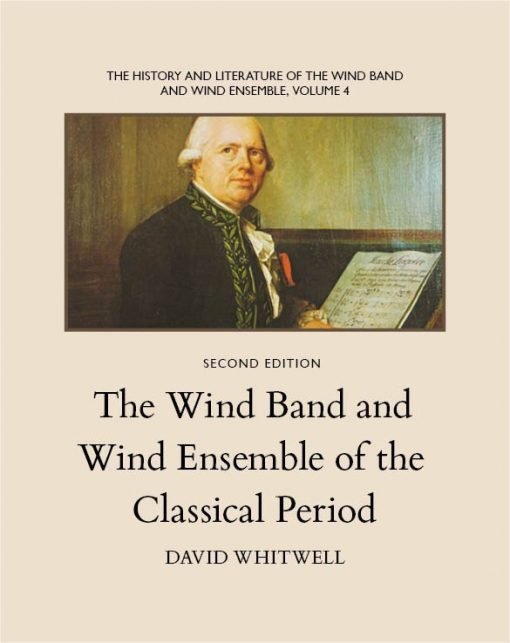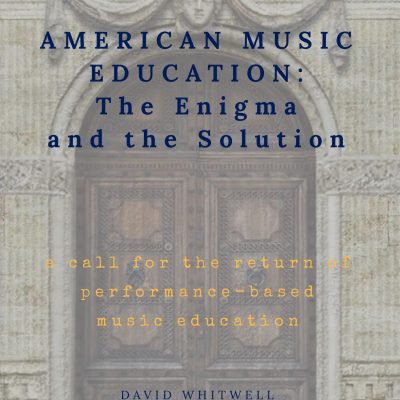Description
The History and Literature of the Wind Band and Wind Ensemble, volume 4
One of the most amazing accomplishments of contemporary music publication. — Wolfgang Suppan, Internationale Gesellschaft zur Erforschung und Forderung der Blasmusik, Mitteilungsblatt, Nr. 15, Marz, 1985.
This History and Literature of the Wind Band and Wind Ensemble will remain for a long time the principal source for the ultimate study of the literature of wind instruments. — Giovanni Ligasacchi, “Quattro Secoli di Storia La Letteratura degli Stromenti a Fiato,” Brescia Musica (Italy), Anno V, n. 21, Febbraio, 1990.
The Wind Band and Wind Ensemble of the Classical Period is the fourth volume in Dr. David Whitwell’s ground breaking thirteen volume History and Literature of the Wind Band and Wind Ensemble series. Whitwell’s meticulous scholarship reveals the continuous history of the wind ensemble, from its earliest roots to the twentieth century — an unbroken tradition of wind music that music scholars have never been fully able to appreciate until now. This volume includes the story of the transformation of the twelve-member Hautboisten bands into the remarkable Harmoniemusik repertoire of the Classical Period. This is the climax of the history of the small band with the greatest composers, including Mozart, Haydn, Beethoven and Schubert, composing for an ensemble associated with the highest society. At the same time occurs the beginning of the preference for the modern large ensemble, created for an integral role in the political celebrations of the historic French Revolution.
Updated with the inclusion of relevant iconography, this second edition belongs in music libraries and conservatoires around the world.
All earlier efforts stand in the shade of this undertaking … Whitwell’s great undertaking presents not only an abundance of new material, which belongs to the literature of anyone interested in wind music but also creates a new dimension for discussion by musicologists. One can not thank Whitwell enough. — Wolfgang Suppan, Oesterreichische Blasmusik, Nr. 5, 1983.





